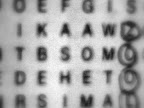NYT covers being gay in Iraq
The front page of Wednesday's NYT has "Iraq’s Newly Open Gays Face Scorn and Murder" --
The relative freedom of a newly democratic Iraq and the recent improvement in security have allowed a gay subculture to flourish here. The response has been swift and deadly.
In the past two months, the bodies of as many as 25 boys and men suspected of being gay have turned up in the huge Shiite enclave of Sadr City, the police and friends of the dead say. Most have been shot, some multiple times. Several have been found with the word “pervert” in Arabic on notes attached to their bodies, the police said.
It's a devastating but well reported story, and the reporters (Timothy Williams and Tareq Maher, plus six other contributors) deserve kudos for doing it. It's an incredibly difficult issue to report, and that's probably part of the reason not very many people have.
My one objection is that they skipped over the history. They wrote:
Gay men and lesbians in Iraq have long been among the targets of both Shiite and Sunni death squads, but their murders have been overshadowed by the hundreds of overall weekly casualties during the height of sectarian violence in 2006 and 2007.
They don't say anything about the older history, which is awfully important to understand the issue.
That history was summarized in the Times' previous story on this issue, by Cara Buckley in December 2007:
For a brief, exhilarating time, from the mid-1980s until the early 1990s, they say, gay night life flourished in Iraq. Whereas neighboring Iran turned inward after its Islamic revolution in 1979, Baghdad allowed a measure of liberation after the end of the Iran-Iraq war.
Abu Nawas Boulevard, which hugs the Tigris River opposite what is now the Green Zone, became a promenade known for cruising. Discos opened in the city’s best hotels, the Ishtar Sheraton, the Palestine and Saddam Hussein’s prized Al-Rasheed Hotel, becoming magnets for gay men. Young men with rouged cheeks and glossed lips paraded the streets of Mansour, an affluent neighborhood in Baghdad.
“There were so many guys, from Kuwait, from Saudi Arabia, guys in the street with makeup,” said Mr. Hili, who left Iraq in 2000. “Up until 1991, there was sexual freedom. It was a revolutionary time.”
Then came the Persian Gulf war, and afterward Saddam Hussein put an end to nightclubs. Iraq staggered under the yoke of economic sanctions. While antigay laws were increasingly enforced, Mohammed and Mr. Hili said they still felt safe. Homosexuality seemed accepted, as long as it was practiced in private. And even when it was not tolerated, prison time could be evaded with a well-placed bribe.
The American invasion was expected to usher in better times.
“We thought that with the presence of Americans, life would become paradise, that Iraq would be Westernized,” Mohammed said. “But unfortunately the way things were before was so much better than where we are now.”


0 Comments:
Post a Comment
<< Home